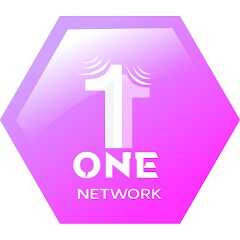Description

Appsme

One Network
Comprehensive Overview: Appsme vs One Network
As of my last update in October 2023, Appsme and One Network may refer to different entities or products, as specific details might not be readily available in mainstream resources. However, I'll provide a generalized analysis based on typical companies or products that fall into these domains, focusing on mobile app development platforms and supply chain networks.
a) Primary Functions and Target Markets
Appsme:
-
Primary Functions:
- Mobile App Development: Appsme likely offers a platform where small to medium-sized businesses (SMBs) can create mobile apps without deep programming knowledge. Such platforms usually provide templates, drag-and-drop interfaces, and basic customization options.
- Publishing and Marketing Tools: Often includes features that help businesses publish their apps to app stores and possibly integrate basic marketing tools to promote the app.
-
Target Markets:
- Small to Medium-sized Enterprises (SMEs): Particularly those that need an affordable, quick, and straightforward solution for mobile presence.
- Non-technical Users: Individuals or small business owners who are not professional developers but want to create apps for business purposes.
One Network:
-
Primary Functions:
- Supply Chain Network Solutions: One Network typically offers software that helps optimize supply chain operations. This could include real-time visibility, demand planning, inventory management, and collaboration across networks.
- Data Integration and Analytics: May provide analytics and insights from supply chain data to improve decision-making and operational efficiency.
-
Target Markets:
- Large Enterprises and Logistics Companies: Businesses with complex supply chains looking for ways to enhance efficiency and reduce costs.
- Industries like Retail, Manufacturing, and Distribution: Sectors that require robust supply chain management solutions.
b) Market Share and User Base
-
Appsme: Platforms like Appsme generally target smaller businesses, so their market share would typically be a small percentage of the overall app development market. Their user base is primarily composed of small business owners and entrepreneurs who seek affordable solutions.
-
One Network: Being a solutions provider in supply chain management, One Network would compete with other major players like SAP, Oracle, and IBM. Market share in this sector is competitive, with user base size depending on the number of enterprise clients they secure through contracts and software deployment.
c) Key Differentiating Factors
Appsme:
- Simplicity and Accessibility: The primary selling point is the ease of use, allowing non-technical users to create mobile apps.
- Cost-efficiency: Typically offers lower pricing options suitable for small businesses with limited budgets.
- Speed: Quick app development process compared to custom development projects.
One Network:
- Integrated Supply Chain Solutions: Offers an integrated platform for various elements of the supply chain, providing end-to-end visibility and control.
- Advanced Analytics: Utilizes data-driven insights to enhance supply chain efficiency.
- Customization: High level of customization suitable for large and complex supply chains, unlike generic solutions often aimed at smaller businesses.
In summary, Appsme is focused on democratizing mobile app development for small businesses with limited resources, while One Network aims to optimize supply chain processes for larger organizations through integrated, data-driven solutions. Each has distinctly different markets and differentiators, reflective of their areas of specialization.
Contact Info

Year founded :
2005
+44020-3744-1790
Not Available
United Kingdom
Not Available

Year founded :
2012
Not Available
Not Available
Nigeria
Not Available
Feature Similarity Breakdown: Appsme, One Network
As of my last update in October 2023, I don't have specific, up-to-date information about "Appsme" and "One Network" that would allow for a detailed feature comparison for these particular products. However, I can provide a structure or a generic approach for how such a comparison might typically be framed in the tech industry, based on commonalities and trends for similar types of platforms.
a) Core Features Commonality
When comparing two platforms or services, especially in technology and networking, common core features might include:
- User Management: Both platforms likely offer capabilities for managing user accounts, permissions, and roles.
- Data Analytics: Common analytical tools that gather and present user data or network performance metrics.
- Security Features: Encryption, user authentication, and other safety measures to protect users and data.
- Integration Capabilities: APIs or connectors to integrate with other applications or services.
- Scalability: Ability to grow with the business needs and handle increasing amounts of processes, users, or data.
b) User Interface Comparison
Comparing user interfaces would typically involve:
- Design Aesthetics: The visual appeal of the interface - color schemes, layout, and branding consistency.
- Usability: How intuitive the interfaces are, including navigation ease, clarity of icons and labels, and the accessibility of common functions.
- Customization: The level to which users can tailor their experience, whether through dashboard configuration, adaptable themes or layouts.
- Performance: Responsiveness of the application - how fast pages load, how quickly users can execute tasks.
- Device Compatibility: How well each platform adapts to various devices, such as desktops, tablets, and smartphones.
c) Unique Features
Unique features would often highlight what sets one product apart from another:
- Appsme: Known for unique customization options for building mobile applications or specific niche tools designed for small businesses or particular industries.
- One Network: Might offer advanced supply chain management features, unique collaborative tools, or specialized network optimization capabilities.
Again, to provide a precise analysis, more specific, detailed information about "Appsme" and "One Network" would be needed from reviews, official resources, or updated product documentation. If this information can be obtained, a thorough breakdown could be developed.
Features

Not Available

Not Available
Best Fit Use Cases: Appsme, One Network
Appsme
a) Best Fit Use Cases for Appsme
Types of Businesses or Projects:
-
Small to Medium Enterprises (SMEs): Appsme is particularly well-suited for small to medium-sized businesses looking to establish a mobile presence without the complexity and cost associated with custom app development. This could include local retail shops, restaurants, or service providers.
-
Local Retail and Hospitality: Businesses like cafes, bars, and local stores can use Appsme to enhance customer engagement and streamline operations with features like loyalty programs, catalogs, or reservation systems.
-
Event Management Firms: Appsme can be ideal for event organizers who need an app to provide guests with schedules, venues, and updates on their mobile devices.
-
Community Groups and Organizations: Nonprofits or community groups can use Appsme to keep members informed and engaged, offering features like event notifications and easy access to resources.
Why It's the Best Choice:
- Ease of Use: Appsme is known for its user-friendly interface that allows businesses to create apps without technical expertise.
- Cost-Effectiveness: Allows businesses to develop apps at a fraction of the cost compared to custom development.
- Quick Deployment: Suitable for businesses that need to launch an app quickly.
One Network
b) Best Fit Use Cases for One Network
Scenarios for Preferred Use:
-
Supply Chain Networks: One Network is highly beneficial for large-scale supply chain management, offering real-time visibility, and planning across extended networks.
-
Logistics and Transportation Companies: Companies dealing with complex logistics operations can use One Network to optimize routes, manage fleets, and improve overall efficiency.
-
Retail and Consumer Goods: Retailers with intricate supply chains benefit from One Network's ability to harmonize inventory levels, manage suppliers, and improve customer service through efficient order fulfillment.
-
Healthcare Systems: Hospitals and healthcare providers can use One Network to track and manage inventory, coordinate care, and ensure compliance with healthcare regulations.
Why It's the Preferred Option:
- Collaboration and Visibility: It provides a comprehensive platform for stakeholders to collaborate and gain visibility into the entire supply chain.
- Scalability: One Network Systems can manage complex, scalable operations that involve multiple stakeholders and dynamic processes.
- Advanced Analytics: Offers powerful analytics to predict demand, identify bottlenecks, and improve decision-making processes.
c) Catering to Different Industry Verticals and Company Sizes
Appsme:
- Industry Verticals: Primarily targets retail, hospitality, entertainment, and small community services.
- Company Sizes: Best suited for small to medium-sized companies due to its simplicity and affordability.
One Network:
- Industry Verticals: Serves a wide range of industries including supply chain, logistics, retail, consumer goods, and healthcare.
- Company Sizes: Typically more suited for medium to large enterprises with complex supply chain and logistics needs due to its robust, extensive features and ability to handle large-scale operations.
By addressing different needs, Appsme and One Network cater to diverse industry requirements and company scales, from small local businesses seeking mobile engagement solutions to large enterprises looking to optimize their entire supply chain network.
Pricing

Pricing Not Available

Pricing Not Available
Metrics History
Metrics History
Comparing undefined across companies
Conclusion & Final Verdict: Appsme vs One Network
To provide a detailed conclusion and final verdict for Appsme and One Network, let’s break down the evaluation into the requested categories:
a) Considering all factors, which product offers the best overall value?
Appsme and One Network cater to different needs, so the determination of the best overall value depends heavily on the specific requirements of the user.
-
Appsme: This platform is tailored towards small to medium-sized businesses looking to create mobile apps without needing extensive technical skills. It offers great value if the primary need is to quickly and affordably develop a basic mobile app to enhance customer engagement and accessibility.
-
One Network: Known for its robust suite of tools aimed at optimizing supply chain management and enterprise operations, One Network provides greater value for large organizations or those specifically focused on improving operational efficiency and data management. It may not be as user-friendly for small businesses or individual users needing simple app development.
Thus, if the focus is on bootstrapped app development, Appsme might offer more value, whereas for comprehensive organizational solutions, One Network stands out.
b) Pros and Cons of Choosing Each Product
Appsme
-
Pros:
- Ease of Use: User-friendly interface that facilitates quick app creation without coding.
- Cost-Effective: Budget-friendly for small businesses wanting an app.
- Customization: Offers essential features for business-specific customization.
-
Cons:
- Limited Features: May lack advanced functionalities needed by larger businesses.
- Scalability Issues: Might not scale well for organizations with growing complex needs.
- Integration Limitations: Fewer integration options with other platforms/apps.
One Network
-
Pros:
- Comprehensive Solutions: Excellent for sophisticated supply chain and enterprise management.
- Scalability: Can efficiently adapt to the growing size and complexity of the business.
- Advanced Features: Features like AI-driven analytics and optimized workflows.
-
Cons:
- Complexity: Steeper learning curve due to the breadth of features and functionalities.
- Cost: Higher investment required, which may not be feasible for smaller entities.
- Implementation Time: Longer setup and integration period due to complexity.
c) Specific Recommendations for Users Trying to Decide Between Appsme vs. One Network
-
For Small Businesses or Entrepreneurs: If your primary aim is to develop a mobile app quickly and at a low cost, focusing on customer engagement without needing deep technical knowledge, Appsme is ideally suited for you.
-
For Medium to Large Enterprises: If your needs extend beyond simple app creation and into areas such as supply chain optimization, enterprise resource planning, and data analytics, One Network is the more appropriate choice.
-
Consider Hybrid Approaches: For businesses that require the functionalities of both platforms, consider an approach where Appsme could be used for customer-facing app solutions, while One Network can handle back-end logistics and enterprise management.
-
Evaluate Future Needs: Consider the scalability and future goals of your business. If significant growth is anticipated necessitating more complex solutions, investing initially in One Network could yield longer-term benefits.
Ultimately, the decision should be aligned with the business's strategic objectives, budget constraints, and technical capabilities.
Add to compare
Add similar companies




